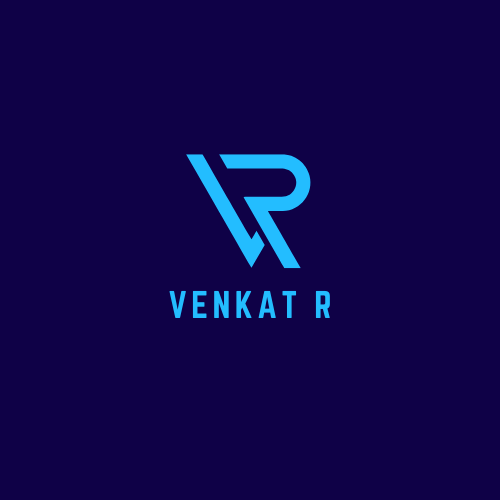Web 3.0: Enhanced Privacy and Data Control with Blockchain
 Venkat R
Venkat RThe internet is evolving rapidly, and at the forefront of this transformation is Web 3.0. Unlike the current iteration of the web, where centralized entities control vast amounts of user data, Web 3.0 promises a more decentralized, secure, and transparent internet experience. Powered by blockchain technology, Web 3.0 provides users with enhanced privacy, data ownership, and control over their online identities. This shift is poised to transform industries ranging from finance to healthcare, as well as fundamentally change how users interact with the digital world.
What is Web 3.0?
Web 3.0 refers to the next generation of the internet, where users have more autonomy over their data, transactions are transparent and verifiable, and decentralized applications (dApps) replace traditional web services. Unlike Web 2.0, which is dominated by tech giants like Google, Facebook, and Amazon, Web 3.0 relies on blockchain networks to create a more equitable online ecosystem.
Key features of Web 3.0 include:
Decentralization: Web 3.0 runs on peer-to-peer networks powered by blockchain, meaning no central authority controls data or transactions.
Transparency: Every transaction or interaction on Web 3.0 is recorded on an immutable ledger, ensuring trust and accountability.
Data Ownership: Users have control over their own data and can decide when, how, and with whom it is shared.
The Role of Blockchain in Web 3.0
Blockchain technology is the backbone of Web 3.0, providing the infrastructure necessary for decentralization and data security. Each transaction, whether it's a payment or the sharing of personal information, is verified and stored on a blockchain, making it tamper-proof.
One of the key innovations driving Web 3.0 is the development of self-sovereign identities (SSIs), which allow users to control their digital identities without relying on third-party services. Using public-private key encryption, users can prove their identity without revealing sensitive personal information, protecting them from identity theft and data breaches.
Privacy and Data Control
Privacy is a central concern in the Web 2.0 world, where data breaches and misuse of personal information by large corporations have become common. In contrast, Web 3.0 allows users to control their data through blockchain technology. For example:
Decentralized finance (DeFi) platforms enable users to manage their financial activities without relying on banks or financial institutions, reducing the risk of personal data being exposed.
Decentralized social networks are emerging as an alternative to platforms like Facebook, where users retain ownership of their posts, photos, and interactions. Lens Protocol and DeSo are two examples of decentralized social media platforms that prioritize privacy and user control.
In addition to individual privacy, Web 3.0 offers transparent governance models, where decisions are made through decentralized autonomous organizations (DAOs). These structures allow users to participate in decision-making processes, ensuring that the community has a voice in how data is used and managed.
Applications of Web 3.0
The potential applications of Web 3.0 extend far beyond social media and finance. Industries such as healthcare, e-commerce, and entertainment are starting to adopt Web 3.0 technologies to improve efficiency, transparency, and user privacy.
Healthcare: Patients can store their medical records on the blockchain, giving them full control over who has access to their data. This not only enhances privacy but also improves the security and accuracy of medical information sharing.
E-commerce: With Web 3.0, consumers can verify the authenticity of products through blockchain-based supply chains, ensuring that goods are ethically sourced and not counterfeit.
Entertainment: Musicians, artists, and content creators can bypass intermediaries like record labels and streaming platforms by using blockchain to sell their work directly to fans. This enables creators to retain more control over their intellectual property and earnings.
The Future of Web 3.0
As Web 3.0 continues to develop, it has the potential to create a more inclusive and transparent internet. However, there are still challenges to overcome, including scalability issues and the need for more user-friendly interfaces. In addition, regulatory frameworks will need to adapt to accommodate the decentralized nature of Web 3.0, particularly when it comes to issues like data privacy and intellectual property.
Conclusion
Web 3.0 represents a fundamental shift in how the internet operates, providing users with more control over their data and online interactions. Powered by blockchain technology, Web 3.0 is poised to disrupt industries, offering enhanced privacy, transparency, and security. As adoption of this new internet paradigm grows, we can expect to see a more decentralized and user-centric digital world.
Subscribe to my newsletter
Read articles from Venkat R directly inside your inbox. Subscribe to the newsletter, and don't miss out.
Written by

Venkat R
Venkat R
I am a marketer with the capacity to write and market a brand. I am good at LinkedIn. Your brand excellence on LinkedIn is always good with me.